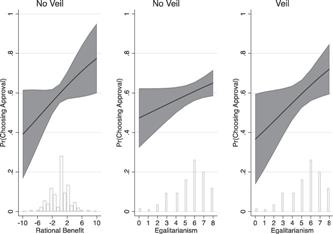Choosing an electoral rule: Values and self-interest in the lab |
| |
| Affiliation: | 1. King’s College London, United Kingdom;2. Université de Montréal, Canada;3. CNRS & Paris School of Economics, France;4. Université libre de Bruxelles, Belgium |
| |
| Abstract: | 
We study the choice of multi-person bargaining protocols in the context of politics. In politics, citizens are increasingly involved in the design of democratic rules, for instance via referendums. If they support the rule that best serves their self-interest, the outcome inevitably advantages the largest group. In this paper, we challenge this pessimistic view with an original lab experiment, in which 252 subjects participated. In the first stage, these subjects experience elections under plurality and approval voting. In the second stage, they decide which rule they want to use for extra elections. We find that egalitarian values that subjects hold outside of the lab shape their choice of electoral rule in the second stage when a rule led to a fairer distribution of payoffs compared to the other one in the first stage. The implication is that people have consistent ‘value-driven preferences’ for decision rules. |
| |
| Keywords: | Political economy Lab experiment Choice of decision rules Electoral rules Voting |
| 本文献已被 ScienceDirect 等数据库收录! |
|

